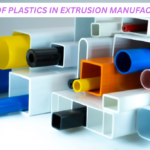A recent report has spotlighted major retailers for their inadequate policies and practices regarding the use of harmful chemicals in consumer products, assigning failing grades to several household names. The assessment, conducted by environmental advocacy organizations, evaluated retailers based on their transparency, efforts to eliminate toxic chemicals, and commitment to safer alternatives.
Many of the lowest-ranked retailers were criticized for their lack of meaningful policies to address the presence of hazardous substances like phthalates, per- and polyfluoroalkyl substances (PFAS), and bisphenols (such as BPA) in their product lines. These chemicals are commonly found in items ranging from food packaging to personal care products and household goods, posing risks such as hormone disruption, cancer, and environmental pollution.
While some companies have made strides in adopting safer practices—such as phasing out PFAS in cookware or eliminating toxic flame retardants from furniture—others have lagged behind, failing to implement significant changes or disclose their progress. Activists argue that the absence of stricter regulations allows these practices to persist, placing the burden of safety on consumers who may lack the information to make informed choices.
The report is a wake-up call for the retail industry, urging companies to prioritize consumer health by adopting safer chemicals and increasing supply chain transparency. It also highlights the importance of consumer advocacy, as public pressure has often been the catalyst for change in promoting safer products.

















